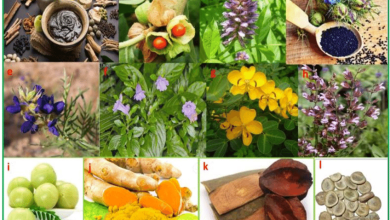The Surprising Brain Benefits of Green Tea, Backed by Science

For centuries, green tea has been celebrated as a healing elixir, cherished in Asian cultures for its soothing aroma and health-promoting properties. Today, this ancient beverage is being rediscovered by scientists and health enthusiasts alike—not just for its role in weight management or heart health, but for its powerful effects on the brain.
Modern research is uncovering remarkable evidence that green tea may help enhance memory, boost mood, protect against neurodegenerative diseases, and even promote long-term cognitive health. But what exactly makes this humble brew so powerful? Let’s dive deep into the science behind green tea and discover how it can support your brain from the inside out.
1. What Makes Green Tea So Unique?
Unlike black tea or oolong, green tea leaves are minimally processed. The leaves are quickly steamed or pan-heated after harvest to prevent oxidation, preserving their natural antioxidants and bioactive compounds.
The result is a tea that’s rich in powerful nutrients, including:
- Catechins – potent antioxidants that protect brain cells from oxidative stress.
- L-Theanine – a rare amino acid known to promote relaxation without drowsiness.
- Caffeine – a mild stimulant that enhances alertness and concentration.
- Polyphenols – compounds with anti-inflammatory and neuroprotective effects.
These ingredients don’t just work individually—they interact synergistically to enhance mental performance and protect brain health.
2. Boosts Focus, Attention, and Mental Clarity
Many people turn to coffee for a mental pick-me-up, but green tea offers a smoother, more balanced boost in alertness—thanks to the unique combination of caffeine and L-theanine.
How It Works
Caffeine acts on the central nervous system to increase the release of neurotransmitters like dopamine and norepinephrine, which help improve focus and concentration. However, unlike coffee’s intense spike and crash, green tea’s caffeine content is modest—about 25–35 mg per cup.
Meanwhile, L-theanine counteracts caffeine’s jittery side effects by promoting alpha brain wave activity—the same state associated with calm focus and creativity.
A 2017 meta-analysis published in Nutritional Neuroscience found that the combination of caffeine and L-theanine significantly improved attention, reaction time, and working memory, particularly during demanding cognitive tasks.
In short: green tea provides a mental “sweet spot”—calm alertness without the overstimulation.
3. Improves Memory and Learning
Memory is at the core of cognitive health, and recent studies suggest that green tea can help strengthen it in fascinating ways.
EGCG: The Memory Molecule
The star compound in green tea—epigallocatechin gallate (EGCG)—has been shown to enhance neuroplasticity, the brain’s ability to form new neural connections.
In a 2014 study published in Psychopharmacology, participants who consumed a green tea extract demonstrated improved connectivity between brain regions associated with working memory.
Another study from Nutrients (2019) found that regular green tea drinkers performed better on memory and recall tests compared to non-drinkers, suggesting that consistent intake may enhance both short- and long-term memory retention.
Researchers believe that EGCG increases the availability of acetylcholine, a neurotransmitter vital for learning and memory. It also reduces oxidative stress in the hippocampus—the brain’s memory center—helping preserve neurons from age-related damage.
4. Reduces Stress and Promotes Mental Calm
In today’s fast-paced world, stress and anxiety can take a major toll on the brain. Thankfully, green tea can help restore calm and mental balance.
The hero here is L-theanine, which promotes relaxation without sedation. Studies show that L-theanine increases levels of GABA (gamma-aminobutyric acid), serotonin, and dopamine—neurotransmitters that regulate mood, emotion, and sleep.
In a 2019 clinical trial published in Nutrients, participants who took L-theanine daily for four weeks reported significantly lower stress and anxiety levels, improved sleep quality, and better cognitive performance.
Moreover, green tea’s subtle caffeine content enhances alertness, creating a relaxed-yet-focused mental state—a phenomenon often described as “calm energy.”
Pro tip: Sipping green tea during work or study sessions may help you stay centered and mentally sharp without feeling overwhelmed.
5. Protects Against Age-Related Cognitive Decline
Perhaps one of the most exciting discoveries about green tea is its potential to protect the brain as it ages.
Neurodegenerative diseases such as Alzheimer’s and Parkinson’s are linked to oxidative stress, inflammation, and the buildup of harmful proteins in the brain. Green tea’s antioxidants may help combat these processes.
The Science
A 2022 study in Frontiers in Aging Neuroscience found that EGCG can cross the blood-brain barrier and directly influence brain cells, reducing the accumulation of beta-amyloid plaques—a hallmark of Alzheimer’s disease.
Similarly, research from the Journal of Nutritional Biochemistry revealed that green tea polyphenols enhance the activity of antioxidant enzymes, reducing damage caused by free radicals in neurons.
In population-based studies, elderly individuals who drank at least one cup of green tea daily showed a lower risk of cognitive decline compared to those who didn’t. A large Japanese study of over 1,000 participants found that regular green tea drinkers had a 50% lower risk of developing dementia over several years.
In essence: green tea nourishes the brain’s defense system, helping preserve memory and cognitive function as we age.
6. Supports Mood and Emotional Well-Being
Beyond its cognitive benefits, green tea may also play a surprising role in emotional balance.
Thanks to its L-theanine and caffeine duo, it helps modulate brain chemicals that influence mood. Studies suggest that green tea drinkers tend to report greater emotional stability and lower symptoms of depression.
A 2018 study published in Nutrients found that older adults who consumed green tea regularly had significantly lower rates of depressive symptoms. Researchers attributed this to green tea’s ability to modulate dopamine and serotonin levels—key players in mood regulation.
Moreover, the mild caffeine content increases dopamine sensitivity, enhancing feelings of motivation and pleasure without overstimulation.
This makes green tea a natural choice for maintaining a positive mood, particularly during stressful or mentally demanding periods.
7. Enhances Brain Blood Flow and Oxygenation
Healthy brain function depends heavily on adequate blood flow and oxygen delivery. Green tea helps improve both.
EGCG promotes the dilation of blood vessels, improving circulation to the brain. This ensures that brain cells receive sufficient oxygen and nutrients, which enhances alertness, mental clarity, and processing speed.
Functional MRI studies have shown that after green tea consumption, cerebral blood flow increases in regions linked to cognition and emotion, such as the prefrontal cortex and hippocampus.
This increased perfusion not only improves immediate mental performance but may also support long-term brain health by reducing ischemic stress—a condition linked to stroke and cognitive decline.
8. Fights Inflammation and Oxidative Stress
Inflammation and oxidative damage are at the heart of many brain-related disorders. Chronic stress, poor diet, and environmental toxins can all contribute to neuronal inflammation, leading to fatigue, poor memory, and neurodegeneration.
Green tea is packed with polyphenolic compounds, particularly EGCG, which act as potent antioxidants. They neutralize free radicals, reduce inflammation, and repair oxidative damage in brain tissue.
A 2021 review in Antioxidants concluded that EGCG exerts strong neuroprotective effects by activating antioxidant pathways (such as Nrf2 signaling) and suppressing inflammatory molecules (like TNF-α and IL-6).
In essence, green tea creates a more favorable internal environment for brain cells to thrive and communicate efficiently.
9. Improves Sleep Quality and Mental Restoration
You might think that a tea containing caffeine would harm sleep, but the story with green tea is different.
Because it contains L-theanine, which promotes relaxation and reduces stress hormones like cortisol, green tea can actually improve sleep quality when consumed in moderation—especially if you choose decaffeinated green tea.
A 2017 study in Nutrients reported that subjects who consumed low-caffeine green tea for seven days experienced improved sleep satisfaction and reduced fatigue during the day.
The combination of calm alertness during waking hours and better restorative sleep at night contributes to overall mental health and cognitive resilience.
10. May Help Repair Brain Cells and Promote Neurogenesis
Recent research has begun exploring green tea’s potential to stimulate neurogenesis—the creation of new brain cells.
EGCG appears to activate signaling pathways (such as the BDNF pathway) that encourage the growth of new neurons and synaptic connections, particularly in the hippocampus.
A 2020 study in Molecular Nutrition & Food Research found that mice supplemented with EGCG showed increased brain-derived neurotrophic factor (BDNF) levels, enhanced learning ability, and improved spatial memory.
If these findings hold true in humans, green tea could be one of the few natural beverages that actually supports brain regeneration.
11. The Role of Green Tea in Brain Longevity
Beyond its short-term boosts in focus or mood, green tea plays a crucial role in long-term brain health.
Its compounds help maintain the integrity of brain cells, reduce inflammation, and promote efficient communication between neurons—all of which slow the natural aging process of the brain.
In fact, epidemiological data consistently show that regular green tea drinkers have a younger “brain age” compared to non-drinkers. This is largely attributed to reduced oxidative damage and improved vascular function.
Regular consumption—just 1–3 cups daily—has been linked to better mental sharpness and memory well into later life.
12. How to Maximize the Brain Benefits of Green Tea
If you’re ready to make green tea part of your brain-boosting routine, here are a few science-backed tips:
✅ Choose High-Quality Tea
Look for organic or shade-grown varieties like matcha, sencha, or gyokuro. Matcha, in particular, contains higher concentrations of L-theanine and catechins since the whole leaf is consumed.
✅ Don’t Overbrew
Steep green tea for about 2–3 minutes at 80°C (175°F). Overheating or over-steeping can destroy delicate antioxidants and result in a bitter taste.
✅ Avoid Adding Sugar
Sweeteners can counteract green tea’s health benefits. Instead, enhance flavor naturally with a slice of lemon, which can also improve antioxidant absorption.
✅ Drink Consistently
Research suggests that drinking at least 2 cups daily provides the best cognitive benefits. Consistency matters more than occasional consumption.
✅ Time It Right
Enjoy your tea during the morning or early afternoon for optimal alertness. If caffeine affects your sleep, switch to decaf green tea after 3 PM.
13. Potential Precautions
While green tea is generally safe for most people, it’s important to note:
- Excessive consumption (over 6 cups per day) can lead to caffeine sensitivity, causing restlessness or insomnia.
- Some green tea extracts in supplement form may affect liver function if taken in very high doses.
- People taking blood thinners or certain medications should consult a healthcare provider before adding concentrated green tea extracts.
In moderation, however, green tea remains one of the safest and most beneficial beverages for overall brain and body health.
14. Green Tea vs. Coffee: Which Is Better for Your Brain?
While coffee has its own set of brain benefits, green tea may offer a more balanced cognitive boost.
| Feature | Green Tea | Coffee |
| Caffeine content | Moderate (25–35 mg/cup) | High (80–120 mg/cup) |
| L-theanine | Present – promotes calm focus | Absent |
| Effect on energy | Smooth, sustained | Quick spike and crash |
| Impact on anxiety | Reduces | May increase |
| Neuroprotective compounds | EGCG, catechins | Chlorogenic acids |
The bottom line? Coffee is great for quick stimulation, but green tea supports long-term mental balance and neuroprotection.
15. The Future of Green Tea in Brain Research
As scientific interest grows, researchers are investigating how green tea compounds could be used in clinical treatments for neurological conditions.
Preliminary evidence suggests that EGCG could slow the progression of Alzheimer’s, Parkinson’s, and even multiple sclerosis by modulating key cellular pathways. Clinical trials are now exploring green tea extract as a natural adjunct therapy for cognitive decline.
Moreover, bioengineers are studying ways to enhance EGCG’s stability and bioavailability so its brain benefits can be harnessed more effectively in supplement or pharmaceutical form.
Conclusion: A Daily Cup for a Sharper Mind
The science is clear—green tea isn’t just a soothing beverage; it’s a brain-nourishing powerhouse. Its rich blend of antioxidants, amino acids, and natural stimulants work together to sharpen focus, calm the mind, improve memory, and protect against age-related cognitive decline.
Whether you’re a student seeking mental clarity, a professional managing stress, or simply someone aiming to preserve brain health as you age, green tea offers a gentle yet powerful ally.
So, the next time you brew a warm cup, remember: you’re not just sipping tea—you’re fueling your brain for a brighter, more focused future.




